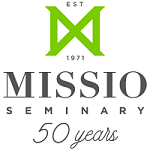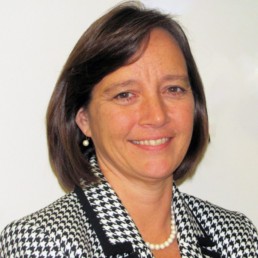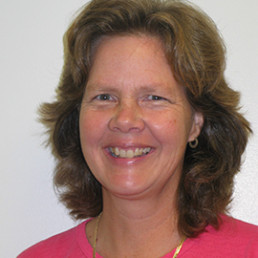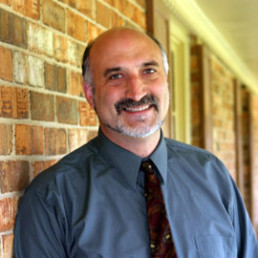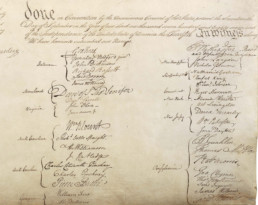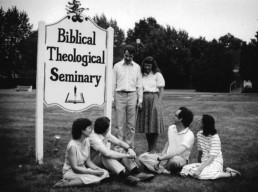Planned Giving
Since its founding, Missio Seminary has been blessed by those who have made deferred gifts to the seminary.
There are many
gifting
options,
including:
• Bequests can be arranged through a will or living trust. They may be for a specific amount, for a specific asset, or for all or a percentage of the residue of an estate. These gifts are deductible for estate tax purposes.
• Life insurance policies may be transferred to Missio Seminary. The donor will receive current tax benefits while providing for Missio’s future. Sometimes the value of this gift will be larger than the amount invested.
• Leaving retirement assets (401K, 403b, IRA, etc.) can avoid both income and estate taxes.
• A Charitable Remainder Trust can be designed to suit a wide variety of donor situations. The trust distributes funds to Missio only after providing income to the donor and/or others for life or a term of years. The donor will also receive current tax benefits when the trust is established.
• A Charitable Gift Annuity is a simple contractual agreement with Missio. In exchange for a gift of cash or appreciated assets, Missio promises to make fixed payments for life to the donor or any one or two individuals designated by the donor. The donor receives a tax deduction for the year in which the annuity is established, and part of each annuity payment is tax-free for a number of years.
If you would like to take advantage of one of these opportunities, simply email us at cdaymon@missio.edu for more information.
Return Policy
Return Policy for Missio Store
Any claims for misprinted/damaged/defective items must be submitted within 4 weeks after the product has been received. For packages lost in transit, all claims must be submitted no later than 4 weeks after the estimated delivery date. Claims deemed an error on our part are covered at our expense.
If you receive a product that is misprinted/damaged/defective or gets lost in transit please email admissions@biblical.edu.
The following things we DO NOT provide exchanges for:
- Item does not fit (please read carefully and consult sizing guides before you order)
- You do not like the item
- You no longer want the item
Board of Trustees
2025-2026 Board Members
The Board of Trustees is comprised of many members of the community, and is dedicated to ensure that Missio Seminary provides the best education for all.
Young Life Partnership
Young Life Partnership
We are officially a Recommended Seminary by Young Life. What does that mean?
- We offer a 25% discount to all full time Young Life Staff
- We accept up to 12 Young Life transcripted training courses as transfer credit

Which courses can be transferred in for Young Life staff?
- Intro to Youth Ministry
- Leadership I
- Intro to New Testament
- Leadership II
- Systematic Theology
- Minister as a Person
- Area Director School
- Christology, Soteriology, and Pneumatology
- Intro to Old Testament
- Kingdom of God & Cultural Intelligence
- Supervision and Organizational Leadership
- Equipping Leaders Who Volunteer
Employment Opportunities
Employment Opportunity Job Board
Missio Seminary is pleased to make external employment opportunities available to alumni and members of our community through a shared job board hosted by Kairos University. The job board features pastoral and ministry-related job openings both in Philadelphia and around the region.
To view current listings, click here.
If you have a job opening you'd like to share, click here, and complete the online form. The listing will become available online following approval (which can take up to two business days). Missio is not responsible for monitoring whether employment opportunities have been filled.
Accreditation
Accreditation for Missio
Missio Seminary began as Biblical School of Theology in 1971 through the shared vision of Dr. Allan A. MacRae, former president of Faith Theological School, and Dr. Jack W. Murray, president of Bible Evangelism, Inc. Dr. MacRae and his colleagues became the founding faculty and classes began meeting in Hatfield, Pennsylvania. The Commonwealth of Pennsylvania granted Biblical the right to grant degrees in 1974; in 1978 the school’s name was changed to Biblical Theological Seminary.
Dr. Frank A. James III was inaugurated as Biblical’s fourth president in 2013. Biblical was accredited by the Middle States Association in 1990 and by the Association of Theological Schools in the United States and Canada in 1995. In 2018 Missio Seminary became the new name of Biblical Theological Seminary.
- Information on Missio’s Middle States Commission on Higher Education (MSCHE) current accreditation status can be found here. Contact information for MSCHE and information on complaints can be found here.
- Information on Missio’s Association of Theological Schools (ATS) current accreditation status can be found here. Contact information for ATS can be found here and information on complaints can be found here.
- Information on Missio’s Pennsylvania Department of Education (PDE) current approval status can be found here. Information on how to file a complaint can be found here.
- Information on Missio’s National Council for State Authorization Reciprocity Agreements (NC-SARA) current approval status can be found here. Information on how to file a complaint can be found here.
General Institutional Information
- Academic Catalog (admission info, educational program)
- Accreditation and State Licensure Information
- State Authorization for Distance Education
- Consumer Complaints
- Services for Students with Disabilities
- Faculty
- Non-discrimination Policy (see Academic Catalog)
- Privacy of Student Records
- Statement of Educational Effectiveness (Student Achievement Report)
- Student Diversity
- Technology Policies (see Academic Catalog)
- Transfer of Credit Policies
- Tuition, Fees, and Textbook Costs
- Tuition Refunds (see Academic Catalog)
Health & Safety Information
- Annual Campus Fire Safety and Security Report
- Campus Safety and Security Policy
- Drug and Alcohol Abuse Prevention
- Emergency Notification Policy (see Academic Catalog)
- Firearms and Dangerous Weapons Policy (see Academic Catalog)
- Fire Safety Policy
- Sexual Harassment Policy and Response Procedures
Voter Registration & Constitution Day
Missio Seminary encourages all who are eligible to vote to do so. To that end the electronic student newsletter posts a reminder about Constitution Day and voter registration in the fall with the link to Pennsylvania’s online voter registration web page.
Constitution Day
On September 17, Missio commemorates Constitution Day
With a call to prayer on that day for the USA and for all countries around the globe.
What is a Constitution
4: the mode in which a state or society is organized; especially : the manner in which sovereign power is distributed
5a : the basic principles and laws of a nation, state, or social group that determine the powers and duties of the government and guarantee certain rights to the people in it ; b : a written instrument embodying the rules of a political or social organization (Merriam-Webster)
Despite being a relatively young country, based on 5b of this definition (which refers to a codified constitution) the USA actually has the world’s oldest existing constitution; even given the broader version of the definition (which includes uncodified constitutions) it’s still just third in line, after Britain and San Marino. As you can see from the chronological lists provided by Wikipedia and the Comparative Constitutions Project, writing up a formal, systematic organization of government is a relatively new endeavor.
Although some of the earliest historical documents we have include descriptions of laws, and a few touch on certain aspects of government, none of them are concerned particularly with “the mode in which a state or society is organized,” let alone “the manner in which sovereign power is distributed.” Rather, they’re concerned with civil, criminal, and religious law—the daily running of life—with the governing body simply assumed.
- Reforms of Urukagina: Although this is likely the earliest legal document we’re aware of, we don’t have the actual text—only descriptions of it. It apparently covered topics such as tax exemptions and certain expenses to be paid by the city-state, but was not an organizing document, merely lists of individual laws.
- The codes of Ur-Nammu and Code of Hammurabi are both concerned with criminal and civil law, but neither touches on the government generating and enforcing these laws.
- Of the various ancient legal codes surveyed while writing this section, the Deuteronomic code actually comes the closest to functioning as a constitution: although it’s primarily concerned with religious, civil, and criminal law, ch. 17 does briefly discuss the mode of ancient Israel’s government.
The United States Constitution
If the US Constitution was such a novelty at the time, how did it even come into being?
After the American War for Independence, the colonies were a loose confederation, acting more like independent countries than a united nation. They were governed by the Congress of the Confederation, a weak legislature that controlled foreign policy, war, and currency, but which still allowed for individual colonies’ sovereignty in an effort to avoid the tyranny of a dominant few.
But the instability of the Union’s early years made it clear to the Congress that a more centralized government based on a revised constitution was necessary. Thus, the states sent delegates to a Constitutional Convention in Philadelphia, Pennsylvania, from May 25 through September 17, 1787.
Throughout the summer, the Convention did not just revise the Articles but created a completely new form of government with three branches: executive, judicial, and legislative. Checks and balances were codified so that no branch would have more power than another. The important question of states’ representation was solved by creating a bicameral Congress, with proportional representation in the House of Representatives and equal representation in the Senate.
On September 17, 1787, the state delegates to the Constitutional Convention met for the last time to sign the document they had created. Following this, the Congress of the Confederation distributed the Constitution to all the states for each to ratify by popular vote.
One issue that was rejected by the Convention but which became a sticking point during the ratification process was the need for a bill of rights, outlining restrictions on the government as it concerned people’s rights. James Madison, a member of the House of Representatives, wrote 19 constitutional amendments in 1789, 12 of which were ratified by the states on September 25 of that year. The first ten were called the Bill of Rights and became part of the Constitution in 1791, outlining the rights of the people to protect them from the state (“Congress shall make no law…”).
Benjamin Franklin, the oldest signer of the Constitution at 81, and a Pennsylvania delegate, spoke to the Convention after the Constitution was signed, saying,
“…I agree to this Constitution with all its faults, if they are such; because I think a general Government necessary for us… I doubt too whether any other convention we can obtain may be able to make a better Constitution. For when you assemble a number of men to have the advantage of their joint wisdom, you inevitably assemble with those men, all their prejudices, their passions, their errors of opinion, their local interests, and their selfish views. From such an Assembly can a perfect production be expected? It therefore astonishes me, Sir, to find this system approaching so near to perfection as it does; and I think it will astonish our enemies… Thus I consent, Sir, to this Constitution because I expect no better, and because I am not sure, that it is not the best.”
What Does the US Constitution Say?
The Heritage Guide to the Constitution – Contains the entire Constitution, divided by articles and amendments. You can hover over the amendment number to see a brief description of it. Once inside an article or amendment, you can read essays pertinent to each component.
The Constitution @ The Charters of Freedom – An extensive archival website for the major charters from the founding of the United States: the Declaration of Independence, the Constitution, and the Bill of Rights. In addition to downloadable images of the original documents, you can read more about the inspiration, creation, and impact of these charters.
ConstitutionFacts.com – Includes the Constitution and Amendments, the Declaration of Independence, and the Articles of Confederation. It also profiles the Founding Fathers and includes an interesting page on the Founders Library, which examines the wider popular and intellectual culture at the time of the Constitution. Or you can have some fun testing yourself with some quizzes.
The founding fathers @ ConstitutionCenter.org – In addition to biographies of the men who wrote and signed the Constitution, this contains a wealth of information about the document itself, including news and debates related to how it’s applied today.
The Constitution @ WhiteHouse.gov – Profiles the three branches of government and their specific duties and powers. It also has a slightly more detailed history of how the Constitution came to be, and provides a brief summary of each of the amendments.
Smart Songs offers easy-to-memorize synopses of the Constitution and Bill of Rights.
The official Constitution of the United States of America as amended, including unratified amendments and an analytical index.
Christians and the Constitution
Why does this matter to a Christian seminary?

The most obvious answer to this question is found within the 1st amendment to the Constitution: “Congress shall make no law respecting an establishment of religion, or prohibiting the free exercise thereof…” Our ability to operate openly and freely as a religious educational institution rests on this amendment, and we ought not to take it for granted, but should instead seek to understand how the amendment operates within the framework of the constitution as a whole—and be capable of explaining its application to the seminary if necessary.
But aside from that, as Christians we are called to function as citizens within civil states. As Paul exhorts us in Rom. 13:1-7:
Let everyone be subject to the governing authorities, for there is no authority except that which God has established. The authorities that exist have been established by God. Consequently, whoever rebels against the authority is rebelling against what God has instituted, and those who do so will bring judgment on themselves. For rulers hold no terror for those who do right, but for those who do wrong. Do you want to be free from fear of the one in authority? Then do what is right and you will be commended. For the one in authority is God’s servant for your good. But if you do wrong, be afraid, for rulers do not bear the sword for no reason. They are God’s servants, agents of wrath to bring punishment on the wrongdoer. Therefore, it is necessary to submit to the authorities, not only because of possible punishment but also as a matter of conscience.
This is also why you pay taxes, for the authorities are God’s servants, who give their full time to governing. Give to everyone what you owe them: If you owe taxes, pay taxes; if revenue, then revenue; if respect, then respect; if honor, then honor. (NIV)
How can we fulfill the instruction in verse 7 if we don’t understand what is actually owed? And since we live in a constitutional republic, understanding our country’s constitution and how it functions is a vital part of figuring that out.
Directions
Come Visit Our Philadelphia Campus
Missio is located at 421 N 7th St., Philadelphia, PA
Easy to find via your preferred GPS as well as within a 15-20 minute walk from Jefferson Station
Our Heritage
Our Heritage
“Biblical Seminary was founded in my dining room.” So wrote John Weir “Jack” Murray, pastor and radio evangelist, and founder of both Bible Evangelism, Inc. and Clearwater Christian College. When Dr. Allan MacRae, retired president of Faith Theological Seminary, learned about Murray’s plans for a new seminary, he contacted Murray to offer his assistance. MacRae would become the school’s first president and later, honorary chancellor.
Despite their shared commitment to this project, the two men approached seminary education from different directions: MacRae (along with a number of faculty from Faith Theological Seminary, who became the founding faculty of the new school) sought to form scholar-pastors able to exegete the Scriptures in the original languages and then apply them within a contemporary context. Murray’s dream, on the other hand, was for a permanent training program focused particularly on evangelism. But in combining these ideas, the founders were able to form a partnership of faith that gave Biblical its special approach to seminary training.
Building a seminary
The site for the new seminary was the former E.B. Laudenslager public school, which had stood vacant for several years and so required extensive renovations. To help defray costs, friends provided furnishings and materials at discount, as well as outright donations of needed items. After much labor, the opening convocation was held September 28, 1971, and the following day classes began with 48 students, one of whom was to become Biblical’s fourth president.
The early days of Biblical Seminary were not without their trials, but through them all, the faculty and staff believed in their vision to change the world for Jesus.
“These were extremely challenging times with faculty salaries in arrears and rather drastic steps taken in colder months to keep the thermostats quite low. On one occasion I clearly recall seeing Professor Dunzweiler wearing an overcoat and hat to retain what little heat was in the room. We had a pioneering spirit in those days. Faculty almost all had to have second jobs. (One professor) found groceries in his car provided by the students who understood the sacrifices that were made by faculty whose salaries were six months in arrears. Staff brought in their own pencils and paper to save expenses.”
– Wayne Davidson Alumnus, former BTS professor and comptroller
Despite such hardships, from the beginning the seminary saw the need to reach beyond its doors with the Word of God. Biblical wanted to train more than just religious professionals, and in 1972, the Evening Bible Institute began to bring seminary training to lay people with a mix of Bible and theology studies.
Seven and a half years after opening, the seminary received from the Commonwealth of Pennsylvania the right to grant degrees, and in order to more clearly identify itself as a graduate institution, changed its name from Biblical School of Theology to Biblical Theological Seminary.
Servant leaders
After twelve years of faithful service, Dr. MacRae retired as president in September 1983 and was succeeded by Dr. G. Aiken Taylor.
“I was surprised at the level of dedication of the faculty and administration of the school (and) at the breadth and diversity of representation among the students. (But) I was not surprised at the level of spiritual maturity and the dedication of the young men and women I have met thus far.”
– Dr. Taylor from the Biblical Bulletin, 1983
Sadly, Dr. Taylor died after only seven months in office. The Board of Trustees immediately appointed George S. Clark, who had served as vice-president from 1980, to fill the role of interim president until a successor to Dr. Taylor could be found. That successor proved to be Dr. David G. Dunbar, one of Biblical’s inaugural graduates; his leadership would further the inter-denominational breadth of the seminary, first in adopting a “centrist evangelical” emphasis, and then to the generously historically orthodox, missional approach the school embraces today.
Change and growth
Under Dr. Dunbar, the seminary saw the rise of the next generation of faculty leadership, committed to the highest standards of scholarship and infused with the life and vitality of Biblical’s founders. Curriculum developed accordingly, with the seminary beginning a counseling concentration within the MA program that proved to be an immediate success, attracting a large number of students in its first year.
“I distinctly remember coming to Biblical from serving with Young Life staff and realizing that while I had been among the more conservative (there), I was probably one of the more ‘liberal’ students at Biblical! I remember Professor Taylor saying: “At Biblical we are Reformed, but we’re happy about it!” I have never forgotten that sentiment and try to live by it.”
– A 1988 graduate
And the legacy of such teaching continued to grow: according to the November 1990 president’s report, “A recent Alumni survey showed 178 graduates serving as pastors, 52 as missionaries, 55 as teachers, 7 military chaplains, and many working as counselors, Christian education directors, music directors and editors for Christian publishers. Biblical graduates can be found in 27 countries around the globe.”
“In particular, I remember the gracious and encouraging spirits of faculty members, administrators, and fellow students alike. Whether in class, in study sessions, or being soundly defeated in ping pong (!) there was a real sense of fellowship and mutual respect.”
– A 2000 graduate
Through all this, community outreach remained a priority, and President Dunbar and Executive Vice-President Thom Skinner started Breakfast with Biblical as a means of connecting with and encouraging business leaders in the community. This ministry continues today.
Recent years
Continuing to seek new ways to reach out to those interested and engaged in ministry, the seminary developed a non-traditional Master of Divinity program which sought to address a number of weaknesses in theological education. The initial success of this program encouraged the seminary to expand its vision to prepare effective leaders for the church in the 21st century. This vision lead Biblical to hold classes at its urban location in North Philadelphia, bringing the new program to the city’s current and future church and ministry leaders.
This desire to engage more with the seminary’s surrounding community and culture found its written expression in Dr. Dunbar’s “Missional Journal;” over the course of seven years he explored the idea of what it means for the church (and by extension, the seminary) to embody Christ before the watching world. As he wrote: “The good news is not just a message to be delivered, but must be demonstrated by a faith active in love.” This was a topic which continued to inspire and challenge him even through his retirement in June 2013, after twenty-seven years of service as president.
Following where Dr. Dunbar had led, in 2013 the board of trustees of Biblical Theological Seminary endorsed a new statement of vision and mission, one of “Missional Engagement,” in conjunction with naming Dr. Frank A. James, III as Biblical’s fifth president. Under Dr. James, along with the full support of the board of trustees, the seminary changed its name to Missio Seminary and committed to moving the main campus to Philadelphia. The seminary continues to honor its heritage by training today’s students to engage the culture and follow Jesus into the world.
